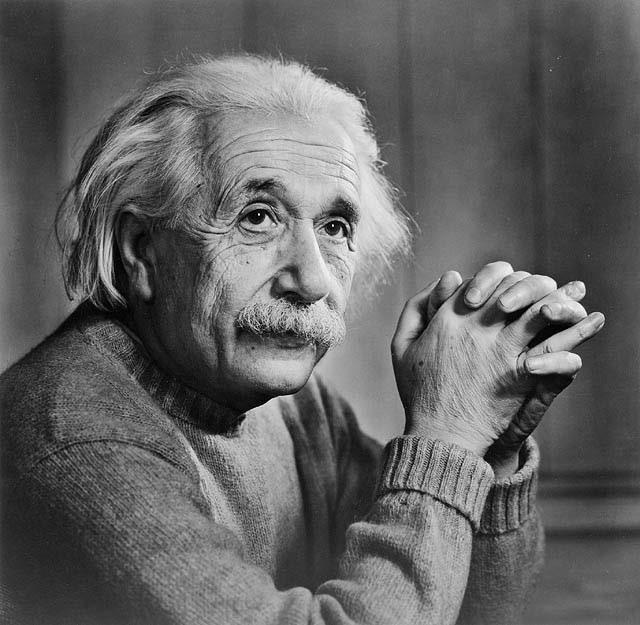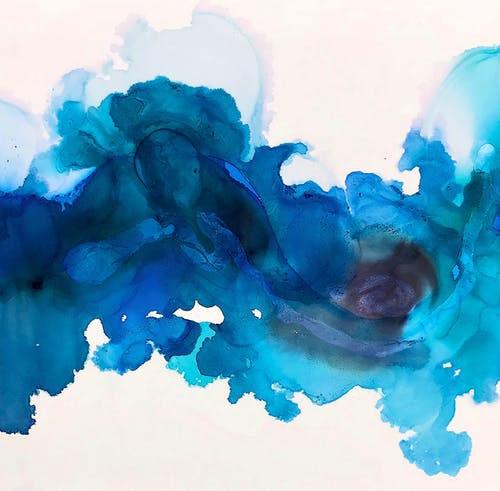
9 minute read
GCSE Curriculum at Wellingborough School
from GCSE Options
This prospectus is designed to help you choose your GCSE subjects. In this document the Heads of Departments describe the courses which may be studied in Year 10 and Year 11 at Wellingborough School. There is also some general advice about how to make the choices appropriate to you.
Some pupils have no difficulty with this choice; they are quite sure which subjects they wish to study to GCSE. For others, however, the choice is less obvious. We hope that this prospectus will be helpful and that it will encourage you to seek advice from your teachers and from others. We hope that it will give pupils and parents some idea of the content of GCSE specifications and that it will help current Year9 pupils to think about their best options, given their strengths and their interests.
To ensure the best possible results at GCSE good working habits are crucial. Motivation, above all, is essential. For this reason, it is very important that pupils are happy with the choices they make. You shouldask your teachers about your suitability for the subject and, if you are able to, enquire of current Year 10 and Year 11 pupils and others of their experience of the subject.This document cannot tell you how toweigh one subject against another or how to resolve competing priorities: you like subject A more, but you think subject B is more useful; for this, you need to talk to someone who knows you well.
Do consult widely with your Parents, Teachers, Tutor and Housemaster/ Housemistress.
The Careers Department will also be able to provide you with useful information.
There is a great deal of experience available to help you make the best possible choice
All pupils in Years 10 and 11 follow a core curriculum comprising:
- English Language and English Literature
- Mathematics
- Physics, Chemistry and Biology Leading to most pupils taking separate iGCSEs in each of the three sciences. If at the end of Year 9 or later in the course it is felt that a pupil would benefit from studying a reduced content they may be entered for GCSE in combined Science after consultation with the pupil and his/her parents.
Work for these core subjects therefore prepares pupils for 6 GCSEs. Whilst studying a Modern Foreign Languages is seen as being highly beneficial, this is no longer mandatory.
In addition, Games and CCF continue, as well as PSHCE. IT skills are taught as a non-examination discrete subject to all pupils in Year 11, however, there is the option to take Computer Science as an examined option in Year 10. These components sometimes alter as the curriculum develops
Beyond this common element of the curriculum, pupils are invited to select five courses in order of preference from the options given below, four of which will be studied. Each course occupies three periods a week. In general, any pupil holding an Art, Drama or Music Scholarship is required to nominate that subject as a first choice. However, if there are reasons why this may not be desirable please speak to the Deputy Head, (Academic), to discuss this in the first instance.
- Art & Design or Photography - History - Computer Science - Latin - Design & Technology - Music - Drama - Physical Education - French - Religious Studies - Geography - Spanish
Pupils should not normally select French, Latin or Spanish if they have not studied this subject in Year 9. Pupils must seek the advice of the Head of Department concerned, if necessary, before returning their GCSE Choices Form.
The Options Scheme
The teaching of GCSE subjects has to fit into the School’s timetable and working week. Although flexibility is a priority, it is important to note that not all combinations of subjects are possible, just as some are undesirable. The subject combinations that we are able to offer are based upon our own research and our experience of the sort of subject combinations which Wellingborough pupils traditionally choose. The specification material in this prospectus is presented in good faith and so are the courses offered. It is, however, important for pupils (and parents) to appreciate that our resources are not infinite. Therefore:
- If some courses become oversubscribed, numbers may have to be limited.
- Courses which attract little or no interest may not run or the number of sets offered may be reduced.
While we will make every effort to accommodate pupils’ first four choices, staffing and/or timetabling restrictions may require some pupils to follow their reserve (i.e. fifth) choice. In all cases we strongly recommend that pupils and parents discuss proposed choices with subject teachers, Housemasters/mistresses and Tutors.
The final GCSE blocking scheme for 2020-2022 will, where possible, take account of all pupils’ choices.
Once the GCSE blocking arrangements have been finalised, typically March/April 2020, revised subject combinations must conform to this structure and any changes will be dependent upon the availability of space in the requested teaching sets.
Advice on choosing GCSE subjects
In general, we seek to allow pupils to study the subjects they wish, provided we feel the combination is in the best interests of the pupil, taking their specific abilities into account. We will seek to discourage combinations which we feel are inappropriate for the pupil concerned, or perhaps represent in themselves an inappropriate combination.
When considering their choices, pupils should try to balance the following factors:
1. Interest and enjoyment
2. Ability and progress
3. Sensible combinations (those which are likely to ensure a broad education)
We stress at this stage the importance of a combination of ability, interest, breadth and balance. It is too easy for a pupil’s choices to be determined by a single narrow consideration.
In this context it is worth remembering that: - A choice of career at this stage is premature and, experience shows, unlikely to last. A large proportion of pupils change their minds about careers, if they have any firm ideas at all, many times before the end of their education.
- Pupils should avoid choosing a subject if, in the opinion of their teachers, they are unlikely to secure a good GCSE grade. GCSE scores are important evidence available to university admissions departments at the time they offer places or alternative post 16 routes including apprenticeships.
- You like it or you find it interesting - It might be useful for a possible future career - You can develop new skills by doing it - You think that you will do well in it - It will give you satisfaction - Your teachers think that it is a suitable choice for you - It will combine well with other subjects and help your general education - You like the method of assessment and teaching - It is a subject that you would like to become good at
BAD reasons to choose a subject include:
- Your friends are doing it - You think that you should do it – even if you do not want to - Your parents think that it is a good idea – but you do not - You know someone who has done it and they say that it is great - It is thought of as a ‘cool’ subject by most people - You cannot think of anything else to choose - You think that it will be easy - It sounds good even though you have not found out about it - You really like the teacher that you have got now - You think that it will impress people now or later
Above all, we recommend that pupils study the subjects that they enjoy most and in which they perform best. It is most likely that these are the subjects which would earn them the best grades at GCSE, and that they will be among the subjects from which the pupils will eventually select their A Levels. In view of the changes to A Level the final GCSE grades form an increasing part of the selection process for offers for University applications.
It is worth noting that it is possible to study some subjects at A Level when a GCSE in that subject has not been studied.
“Creativity is intelligence having fun” Albert Einstein
Timetable for choosing
While we aim to be as flexible as possible, next year’s timetable will be based on what you choose now, so careful consideration is important.
The Deputy Head (Academic) will be happy to answer any questions that you have or direct you to the person best placed to deal with your enquiry.
Art and Design & Photography
It is our philosophy that Art education enhances the overall development of the child and is crucial in a world that is increasingly more visually sophisticated. The slogan “Thinking outside the box” has become progressively more important in all types of diverse industries. Some creativity is, of course, natural but a huge amount can be learnt and all can be improved through practice.

“Creativity is intelligence having fun” Albert Einstein
Art and Design & Photography are incredibly versatile subjects. An Art and Design or Photography lesson not only allows the learning and development of skills but also encourages self-expression and requires pupils to make their own choices and discoveries thus developing their independent learning ability. The teaching of Art or Photography must therefore involve exposing pupils to a broad base of knowledge whilst introducing them to positive role models and a variety of cultures. Studying Art and Design or Photography does not just lead to creating pretty pictures to hang in your house or a gallery; there are numerous disciplines under this one umbrella. There are, of course, the visual Fine Arts of Drawing, Painting, Print making, Sculpture, Photography, but also within Design there are Graphics, Interiors, Architecture, Conceptual Art, Film and Theatre Set Design/Costume and Art direction. The video games you play, which are getting more realistic by the day, have all been designed and created by teams of different artists; the clothes you wear and the fashion pages of magazines you may flick through, even your hairdryer, sofa and wallpaper, have all been created by artistic people. If you have an interest in any of the above then GCSE Art and Design is for you and you just need to consider which endorsement to follow!

In order to work to pupils’ interests and strengths Wellingborough School allows pupils taking the Art and Design GCSE option two routes from which to choose: either Fine Art or Photography and Graphics. Both courses have similarities but focus on different materials, skills and practices. There is no drawing ability needed for the Photography/ Graphics option. Whilst every attempt will be made to allocate pupils to the group following the course of their choice this cannot be guaranteed. In some cases, the subject teachers may make suggestionsto ensure that a pupil is choosing the option which fits best with the skills that they have developed throughout Year 9.









